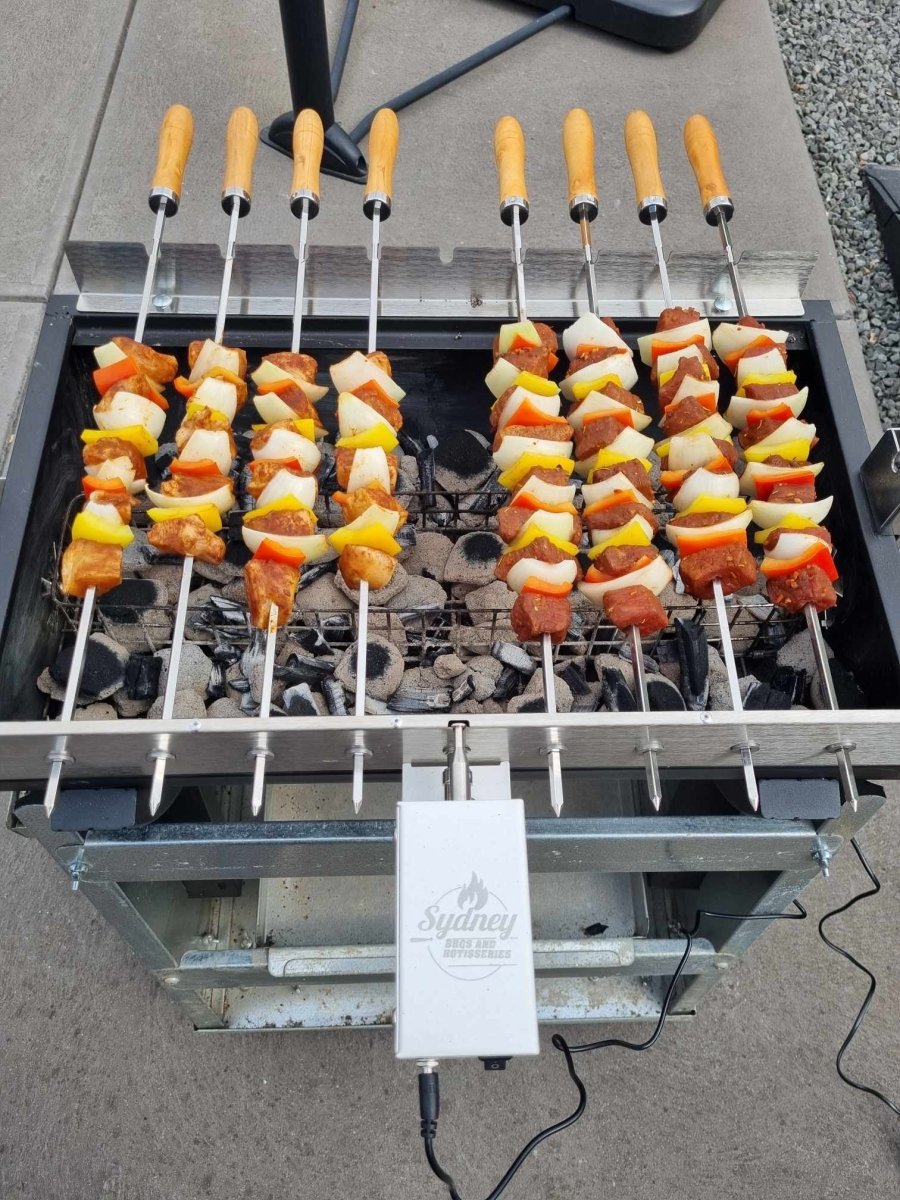Grilling is a beloved pastime that brings friends and family together to enjoy delicious food outdoors. If you're new to the world of BBQ, it can seem a bit daunting at first. But fear not! With the right guidance, you'll be grilling like a pro in no time. This beginner BBQ guide will provide you with essential tips and tricks to get started.
1. Choosing the Right BBQ
Before you begin, it's important to select the right BBQ for your needs. There are several types to choose from, including gas, charcoal, and electric grills. Each has its own advantages:
- Gas Grills: Easy to use and quick to heat up. Perfect for beginners who want convenience and control over temperature. Gas grills are typically more expensive but offer consistent heat and are ready to cook within minutes. They are also easier to clean since there's no ash to dispose of.
- Charcoal Grills: Offers a traditional smoky flavour. Requires more effort to set up and maintain a consistent temperature. Charcoal grills are generally more affordable and portable, making them a favourite among purists who enjoy the ritual of lighting the coals and managing the fire. The smoky flavour imparted by charcoal is unmatched.
- Electric Grills: Ideal for small spaces or areas with restrictions on open flames. Easy to use but may lack the authentic BBQ flavour. Electric grills are perfect for apartment dwellers or those with limited outdoor space. They are also very easy to use – simply plug them in, set the temperature, and start grilling.
2. Gathering Essential Tools
Having the right tools can make your grilling experience much smoother. Here are some must-haves for every beginner:
- Grill Tongs: Long and sturdy tongs for flipping and moving food. Opt for stainless steel tongs with a good grip to handle all types of food.
- Spatula: A good-quality spatula for flipping burgers and other flat items. Look for one with a long handle to keep your hands safe from the heat.
- Grill Brush: Essential for cleaning the grill grates before and after use. A clean grill ensures better-tasting food and prevents sticking.
- Meat Thermometer: Ensures your meat is cooked to the right temperature. This is crucial for food safety and achieving the perfect level of doneness.
- Basting Brush: For applying marinades and sauces to your food. Silicone brushes are easy to clean and can withstand high temperatures.

3. Preparing Your Grill
Before you start cooking, it's important to prepare your grill properly:
- Clean the Grates: Use a grill brush to clean the grates. This helps prevent sticking and ensures a clean cooking surface. Cleaning the grates while they are still hot makes the job easier.
- Preheat the Grill: Preheat your grill for at least 10-15 minutes. This helps to kill any bacteria and ensures an even cooking temperature. A properly preheated grill will also create those desirable grill marks.

4. Understanding Heat Zones
Creating different heat zones on your grill is crucial for successful grilling:
- Direct Heat: This is the area directly above the flames. It's perfect for searing and cooking thinner cuts of meat quickly. Foods like burgers, steaks, and vegetables benefit from direct heat.
- Indirect Heat: This is the area away from the flames. It's ideal for cooking larger cuts of meat slowly and evenly. Use indirect heat for items like whole chickens, ribs, or roasts that require longer cooking times.
By mastering the use of heat zones, you can cook a variety of foods to perfection.

5. Mastering Basic Techniques
Here are some basic grilling techniques to get you started:
- Searing: Use direct heat to sear the outside of the meat, creating a flavourful crust. Searing locks in juices and enhances the taste.
- Grilling: Cook food over direct heat, flipping occasionally for even cooking. This method is ideal for quick-cooking items like kebabs and hotdogs.
- Smoking: For charcoal grills, add wood chips to create smoke and infuse your food with a rich, smoky flavor. Soak the wood chips in water for about 30 minutes before adding them to the coals to prolong the smoking time.
- Basting: Apply marinades or sauces during cooking to add moisture and flavor. Baste towards the end of the cooking process to avoid burning the sugars in the sauce.
6. Cooking Tips for Beginners
Keep these tips in mind to ensure a successful BBQ experience:
- Don’t Overcrowd the Grill: Leave enough space between items for even cooking. Overcrowding can lead to uneven cooking and can also cause flare-ups.
- Use a Meat Thermometer: Check the internal temperature to ensure your meat is cooked safely. Different meats have different safe internal temperatures, so keep a chart handy.
- Let Meat Rest: Allow meat to rest for a few minutes after cooking to retain juices. Resting meat allows the juices to redistribute, resulting in more flavorful and tender meat.
- Experiment with Flavours: Don’t be afraid to try different marinades, rubs, and sauces. Experimenting with flavors can help you discover your signature BBQ style. Start with basic marinades and gradually explore more complex ones as you gain confidence.

7. Safety First
Always prioritize safety while grilling:
- Keep a Spray Bottle Handy: Use it to control flare-ups. A spray bottle filled with water can quickly tame small flare-ups without affecting the cooking temperature.
- Never Leave the Grill Unattended: Stay close by to manage any issues that arise. Unattended grills can lead to dangerous flare-ups or even fires.
- Grill in a Well-Ventilated Area: Ensure good ventilation to avoid smoke inhalation. Avoid grilling in enclosed spaces to prevent the buildup of harmful carbon monoxide.
8. Exploring BBQ Recipes
Starting with simple recipes can help you build confidence. Here are a few beginner-friendly ideas:
- Classic Cheeseburgers: Season ground beef patties with salt and pepper, grill over direct heat, and top with cheese slices during the last minute of cooking.
- Grilled Chicken Breasts: Marinate chicken breasts in olive oil, lemon juice, garlic, and herbs. Grill over medium heat until cooked through.
- Vegetable Skewers: Thread chunks of bell peppers, onions, cherry tomatoes, and zucchini onto skewers. Brush with olive oil and season with salt and pepper. Grill until tender and slightly charred.
- Grilled Pineapple: Slice a fresh pineapple into rings, brush with a mixture of brown sugar and cinnamon, and grill until caramelized.

9. Troubleshooting Common Issues
Even seasoned grillers encounter problems. Here are solutions to common grilling issues:
- Sticking Food: Ensure the grill grates are clean and preheated. Lightly oil the grates or the food to prevent sticking.
- Flare-Ups: Trim excess fat from meat and avoid oil-heavy marinades. Keep a spray bottle of water nearby to manage small flare-ups.
- Uneven Cooking: Use indirect heat for larger cuts of meat and rotate food as needed. Close the lid to maintain a consistent temperature.
- Dry Meat: Avoid overcooking by using a meat thermometer. Marinate meat to add moisture and flavor.
Conclusion
Starting with BBQ doesn’t have to be intimidating. With the right equipment, preparation, and techniques, you’ll be on your way to becoming a BBQ master. Remember, practice makes perfect, so don’t be discouraged if your first few attempts aren’t flawless. Enjoy the process and savour the delicious results!
By following these beginner BBQ tips, you'll be well on your way to impressing your friends and family with your grilling skills. Happy grilling!


